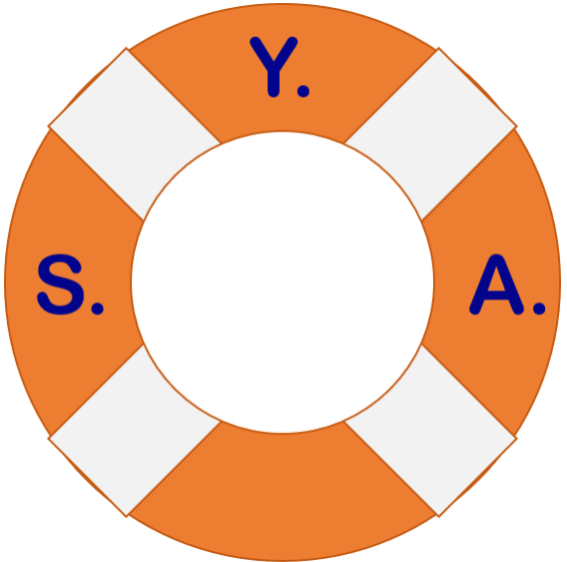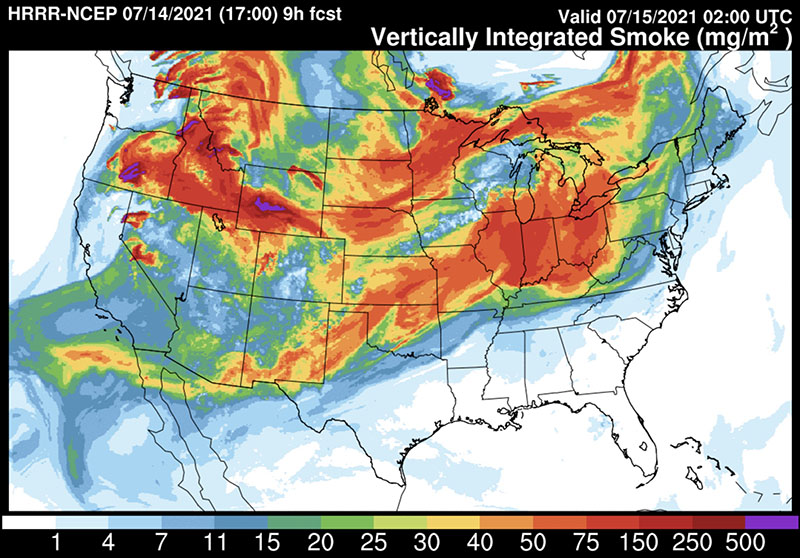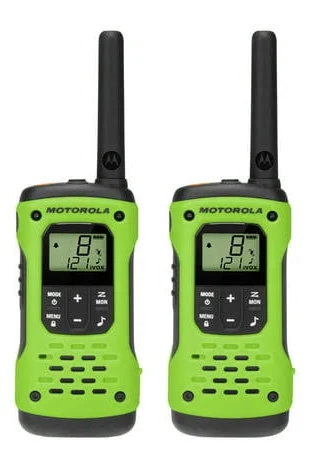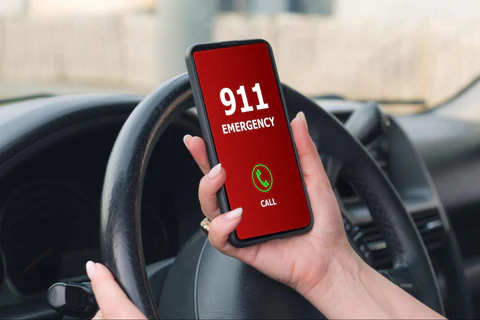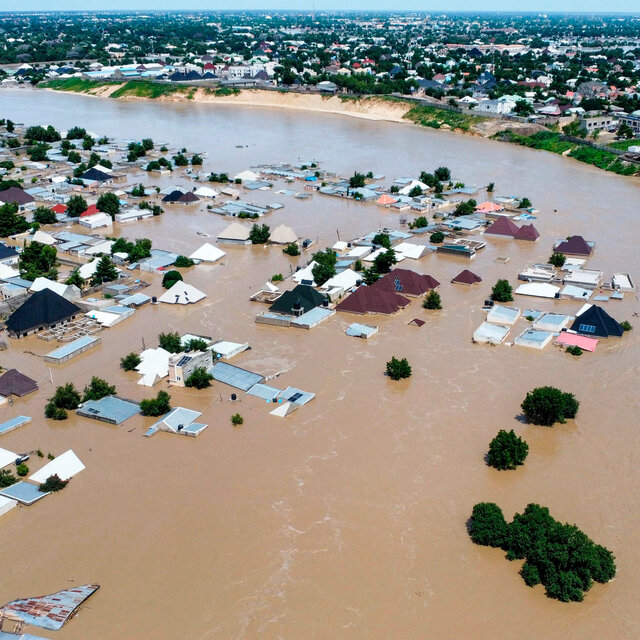Last week I talked about the need for an air purifier to help with seasonal allergens but more for wildfire smoke. With the increase in wildfires due to climate change how bad is the smoke from wildfires?
Smoke Forecasts
For starters, as I’m writing this, I’m also planning to go out of town this weekend to visit Dinosaur National Monument on the border of Utah/Colorado. This will be my first out of town trip since Feb 2020 when I spent a weekend in Las Vegas just before COVID sent the country into lockdown. A couple new items on my pre-trip planning checklist in addition to weather conditions and covid restrictions now include:
- Are there any wildfires near my destination or along my route? (Thankfully no)
- If yes, will it impact my travel or activity plans and how? (Nope)
- What is the air quality / smoke forecast? (Thankfully air quality is supposed to be good on Saturday but declining on Sunday)
- Is this going to affect my outdoor activities? (No on Saturday, possibly on Sunday)
The New Normal
Smoke forecast? Yes, you read that right. The new normal of constant wildfires during the summer and fall months mean that news stations give smoke forecasts and air quality stats right along with the weather forecasts. If you read my post last week on air purifiers you saw how thick it can get. It can even block out the sun and it is really bad for your lungs. Anyone with any respiratory issues can be seriously affected by poor air quality due to wildfire smoke.
Wildfire Smoke is dangerous
Wildfire smoke affects air quality and new reports show how toxic the smoke really is.
- Smoke from California’s wildfires could contain dangerous levels of toxic metals, new research shows
They have even correlated data from individuals in areas affected by wildfires that got COVID. Most experienced more severe cases or died due to exposure to large amounts of wildfire smoke that further impacted their lungs.
- Wildfire smoke associated with increase in severe COVID-19 cases and death, new research suggests
- Wildfire smoke linked to higher COVID-19 death rates
Why so much smoke?
Due to the mega-drought in the western US (I wrote about that last month), wildfires can be easily touched off by a spark instantly igniting the dry grasses and ground debris and be out of control in minutes. It’s not an exaggeration.
- In 2020, several fires in Utah were caused by sparks off the wheels of a passing train hitting the dry grass next to the tracks.
- A person target shooting in June touched off a wildfire near Snowbasin ski-resort that came within feet of homes on the mountain.
- UPDATE 8/16: This weekend while I was out of town, a wildfire was started along HWY 80 in Parley’s Canyon by a passing vehicle. It was determined that burning hot pieces from a broken catalytic converter fell into the roadside brush, igniting the blaze. It raced up the mountain despite recent rains. The smoke really impacted the surrounding communities for days.
It’s not just the US
Wildfires are burning all across the globe right now thanks to human-caused climate change. I’m working on a post for next week that will go into more detail about these wildfires and the damage they are causing. Suffice to say they are throwing more smoke into the atmosphere now that at any other time in the last 50 years. Wildfires burning in Siberia are larger than all the rest of the fires in the world combined. Smoke from these fires has reached the North Pole for the first time in recorded history.
Visible from space
Both the wildfires and smoke are visible from the International Space Station and overhead satellites. It is alarming to see.

Affects areas far from the wildfires
Smoke travels far from the fires that created it. In June, wildfire smoke from California reached New York City.

The sun is almost completely blocked out on this day in June.
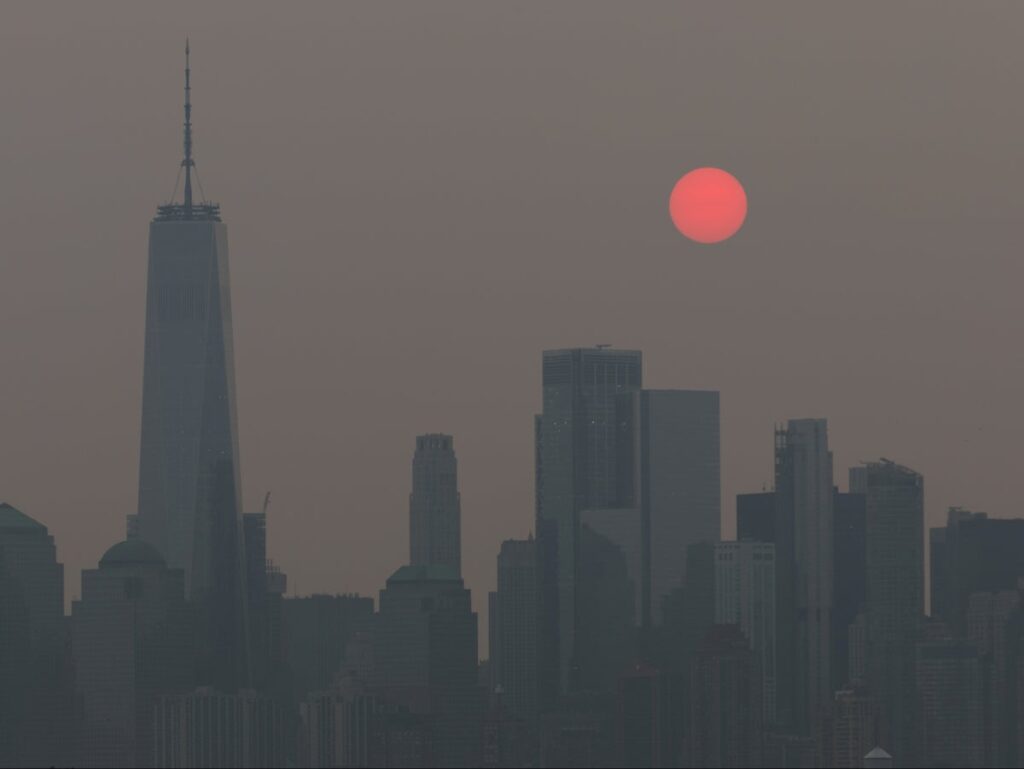
Tracking Smoke Activity
As you can see in this map, smoke is tracked like storm weather. The more intense the color the more dense (and dangerous) it is.

Most of the smoke is reaching far to the east of the fires. On this day Nevada, Utah and Colorado are particularly impacted by the fires burning in California and Oregon. Smoke has even made it to the east coast and up into Canada.
Northeast Wyoming and southwest and central South Dakota were being impacted by a fire in Montana.
How to get a smoke forecast
If you live in a state that does not regularly provide smoke forecasts as part of their weather you can get them yourself online.
Websites
There are a number of websites and apps that have real-time data on wildfires and smoke activity. Here are two:
Air Quality Apps
Another way is to install an air quality indicator (AQI) app on your phone. I use AirVisual by IQAir but there are many available. Your weather app may even provide air quality status.
Good information needed to make decisions
Only you can make decisions about your health, but having good information is vital to making good decisions. Knowing how bad the smoke is in your area and how that can impact you is another tool for you to use to make good decisions regarding your health.
Last Updated on August 16, 2022
